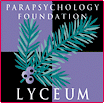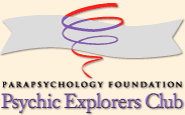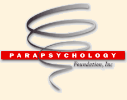 |
 |
| THE BIOGRAPHICAL DICTIONARY OF PARAPSYCHOLOGY LEONID LEONIDOVICH VASILYEV Psychologist. B. 1891, Russia. Graduate, 1914, Petersburg University. Teacher of biological sciences, Ufa, Bashkir, 1914-21; head of the Physiology Department, Bekhterev Brain Institute, Leningrad, 1921-38; professor of physiology, Leningrad University, 1943 to present. Corresponding member, Academy of Medical Sciences of the Soviet Union. Author of some one hundred scientific papers dealing with physiology an the biophyiology of the nervous processes, Professor Vasilyev is considered an authority on parabiosis and on the medical use of ionized air. Some of his publications in this field include The Electrotonic Restoration of Physiological Functions (1937); Theory and Practice of Treatment by Ionized Air (1953), and The Role of N. E. Wedensky's Physiological Doctrine in Neuropathology (1953). Professor Vasilyev is also a pioneer in the study of parapsychology in the Soviet Union and at his suggestion a special parapsychology laboratory, the first of its kind in the country, was established at Leningrad University. He has written two books on parapsychology, Mysterious Manifestations of the Human Psyche (1959), an introduction to the subject, and Suggestion at a Distance: Notes of a Physiologist (1962). In this most recent book, Professor Vasilyev outlines the history of parapsychology, reports on spontaneous cases of "thought suggestion" or telepathy, discusses the laboratory experiments of such investigators as J. B. Rhine, S. G. Soal, R. L. Khérumian and Milan Ryzl (qq.v.), and reviews his own investigations in the field. These last experiments lead him to the theory that thought suggestion may have physiological effects on the percipient, "for instance may cause him to make unconscious automatic movements, bring about changes in the activity of his brain and circulatory system, and the like." Describing the experiments he conducted "over a period of years" with two scientists of the Bekhterev Institute, Vasilyev reports that the agent repeatedly induced hypnotic sleep and awakening in the percipient, who was separated from him by two rooms. Instruments connected with the percipient's hand and brain registered moments of falling asleep and awakening and showed changes in the electrophysiological reactions of his brain. These unconscious actions, Vasilyev says, "unmistakably" coincided with the agent's silent issuance of suggestions. Reviewing natural evidence and laboratory tests showing that telecommunication exists in the animal world (as in fish migrations and mating practices of insects), Vasilyev relates this process to telepathy in man, expressing the belief that the "telepathic gift" is a "rudimentary property which man has kept from his zoological ancestors." He dismisses the "electromagnetic" theory of telepathy and favors instead a theory that telepathic communications are "effected by some type of energy or by a factor as yet unknown to us, present...in the matter and structure of the brain." The discovery of such a factor, says Vasilyev, "would be equivalent to the discovery of the intra-atomic energy...It is exactly toward that objective that research in parapsychology should be orientated." See aslo the article "Russia Explores "Inner Space" by Martin Ebon (Tomorrow magazine, Winter 1962, Vol. 10, No. 1), and the book review "Soviet Primer of Parapsychology by George Alexandrov (International Journal of Parapsychology, Winter 1963, Vol. 5, No. 1). Taken from Helene Pleasants (1964) Biographical Dictionary of Parapsychology with Directory and Glossary 1946-1996 NY: Garrett Publications |
 |

|
 www. parapsychology. org |
||